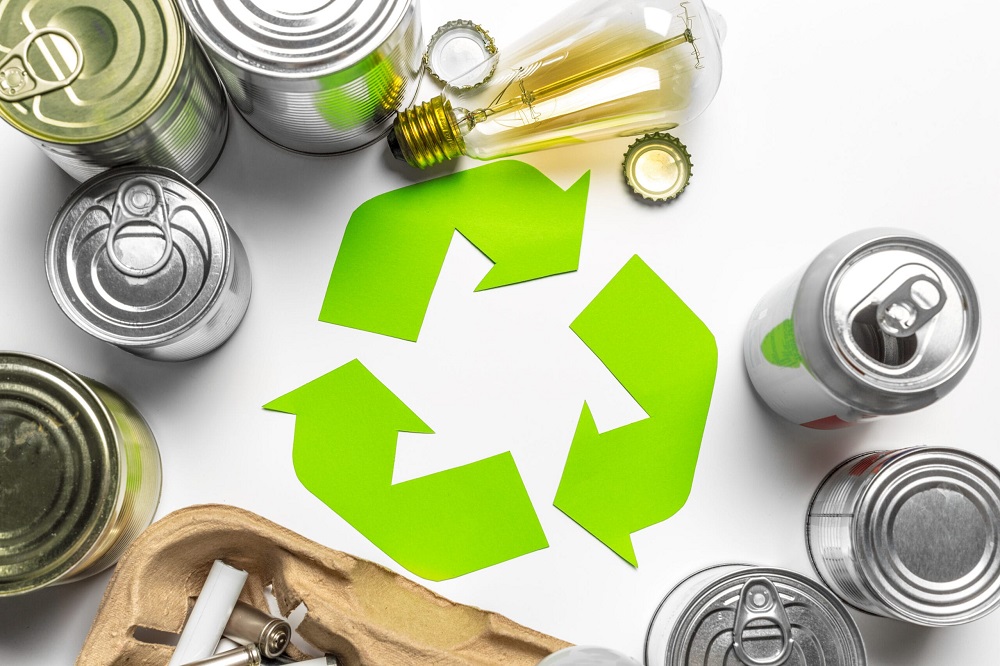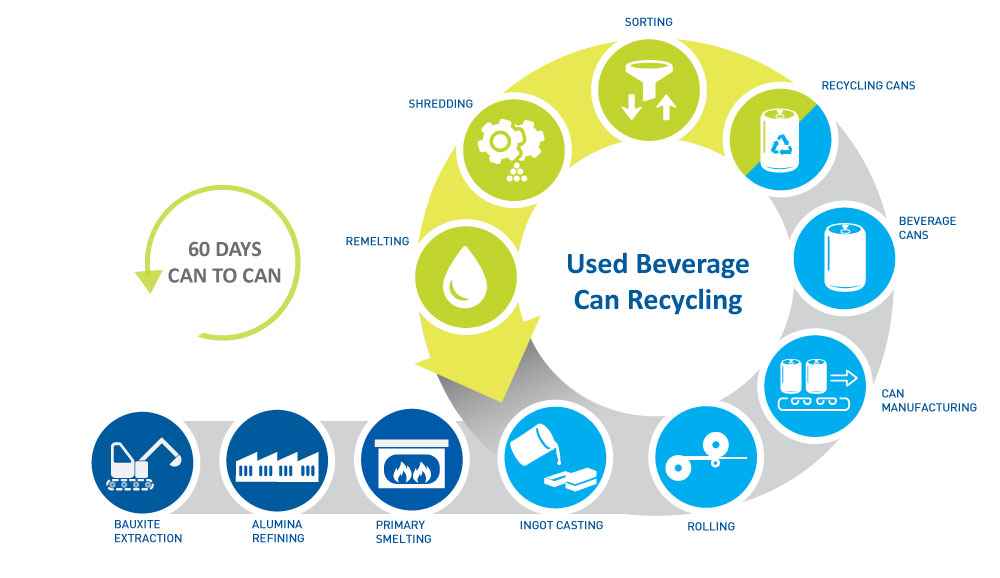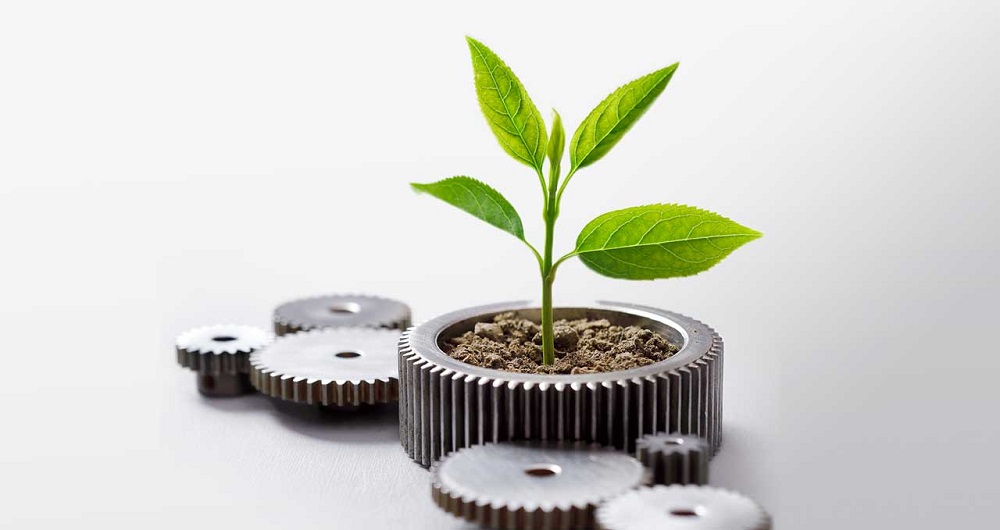Introduction
In today’s world, where climate change and environmental issues have become one of the main challenges for human societies, the optimal use of natural resources and waste reduction have gained great importance. One of the effective ways to achieve this goal is the recycling of various materials. Aluminum, as one of the most widely used metals in different industries, plays a significant role in this process. Recycling this metal is not only economically beneficial but also has positive effects on the environment and reduces energy consumption. This article examines various aspects of aluminum recycling, including processes, benefits, and its economic and environmental impacts.
Why is Aluminum Recycling Important?

Aluminum is a lightweight, durable, and widely used metal in industries such as packaging, transportation, construction, and household appliances. Its properties, such as corrosion resistance and lightness, have increased its applications across various sectors. An essential aspect of aluminum usage is its efficient and sustainable utilization. The importance of aluminum recycling is significant, as aluminum is a fully recyclable material, allowing for continuous reuse without any loss in quality. Recycling this metal can significantly reduce the consumption of natural resources and energy. Producing aluminum from bauxite ore requires a large amount of energy, whereas the recycling process drastically reduces this energy consumption, leading to resource conservation and sustainability.
Aluminum Recycling Process

Aluminum recycling is an efficient cycle that includes the stages of collection, cleaning, melting, and re-molding. These steps are as follows:
Recycled aluminum is reused in the production of new products such as beverage cans, automobile parts, and electronic equipment.
Aluminum-containing products, such as beverage cans, aluminum foils, and household appliance parts, are separated from waste and transported to recycling centers for processing.
The collected aluminum is cleaned and purified to remove contaminants and impurities, ensuring the quality of the recycling process is maintained.
The aluminum is melted in specialized furnaces at a temperature of around 660°C, and impurities are removed. This stage requires less energy compared to producing primary aluminum.
The molten aluminum is cast and shaped into various forms such as sheets, billets, or industrial parts, so it can be reused in different industries.
Advantages of Aluminum Recycling

Aluminum recycling, in addition to its economic benefits, also has positive effects on the environment. Some of these benefits include:
1. Energy Savings
One of the biggest advantages of aluminum recycling is the reduction in energy consumption. Producing aluminum from raw materials (bauxite) is an expensive and energy-intensive process. However, recycling aluminum requires only 5% of the energy needed to produce new aluminum. This reduction in energy consumption leads to a decrease in greenhouse gas emissions and reduces the negative environmental impact of aluminum production.
2. Pollution Reduction
The process of producing aluminum from natural resources is not only energy-intensive but also leads to the emission of pollutants into the atmosphere. Additionally, the production of aluminum from raw materials can cause water and soil pollution. However, aluminum recycling minimizes these issues. Overall, recycling this metal helps reduce air, water, and soil pollution, contributing to a cleaner and healthier environment.
3. Conservation of Natural Resources
Aluminum is a non-renewable metal, and its natural resources are depleting. Recycling aluminum allows us to make optimal use of existing resources and reduces the need for extracting bauxite (the primary raw material for aluminum production). This helps conserve valuable resources and minimizes the environmental impact associated with mining.
4. Waste Reduction
Aluminum is a material that does not decompose quickly in nature due to its unique properties. As a result, aluminum waste remains in the environment for a long time, potentially causing long-lasting environmental impact. Recycling aluminum helps reduce this waste, ensuring a cleaner and healthier environment by preventing aluminum from lingering in nature for extended periods.
Reduction of Production Costs
Recycling aluminum reduces production costs because it uses recycled aluminum instead of extracting and processing aluminum from natural resources. This cost reduction benefits not only manufacturers but also consumers, as it leads to lower final product prices.
Impact of Aluminum Recycling on the Economy
Aluminum recycling not only has positive effects on the environment but also benefits the economy. The recycling process reduces the need for natural resources and energy, leading to lower production costs. Additionally, the aluminum recycling industry can create new job opportunities and contribute to economic growth across various sectors.
Aluminum recycling, as an economic process, can generate added value and create a new source of income for various industries, including recycling, manufacturing, and transportation. By transforming waste into reusable materials, it not only supports sustainability but also opens up new revenue streams and business opportunities.
Key Points about Aluminum Recycling

- Aluminum is 100% recyclable and its quality does not decrease at any stage of the recycling process.
- Recycling aluminum is much less expensive than producing aluminum from primary resources.
- The aluminum recycling process reduces energy consumption and the use of natural resources.
- Aluminum can easily be converted into new materials and returned to the economic cycle.
- Using recycled aluminum in the production of new products helps reduce waste volume and minimizes pollution.
Conclusion
Aluminum recycling is a highly efficient and beneficial process that not only contributes to environmental protection but also plays a key role in reducing production costs and saving energy. By decreasing the need for raw material extraction and reducing pollution, this process helps preserve natural resources and the environment. Furthermore, recycling this material can also benefit the economy of countries by creating new job opportunities. Therefore, promoting the culture of aluminum recycling and optimizing the use of this metal in various industries can become a sustainable and effective solution to address both environmental and economic challenges.
